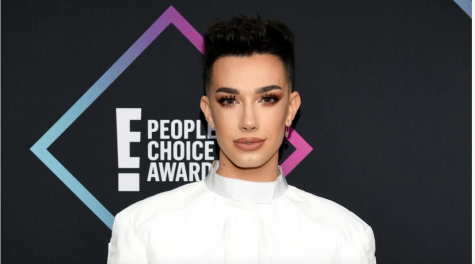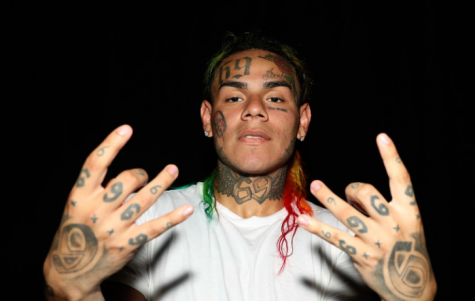Cancelling Cancel Culture
The harms of participating in Generation Z’s new Cancel Culture trend
September 19, 2020
Generation Z is the most technologically advanced generation. Many of us fight against climate change and for gun control. Our generation encompasses people from the ages of eight to 23 and we’re living during a unique period of history. We are growing up in the most advanced generation and have seen many conflicts, uprising, and revolutions. Our generation also frequently participates in new cultural trends, one of them deemed “Cancel Culture.”
“Cancel Culture” is defined as a culture in which a group of people no longer support, or “cancel,” a person, company or group due to something socially unacceptable they may have said or committed in the past. To many, Cancel Culture might be positive. It creates accountability for celebrities and companies to apologize for their wrongdoings, usually with the intent of effecting societal change. Cancel Culture, however, is not always the tool the public might want it to be. It has also evolved into a means of public shaming and character assassination, where those who are “canceled” are stripped of their livelihoods, mental health and friends, without ever receiving the chance to apologize or explain themselves.
Cancel Culture started out in Black Twitter circles. According to Insider, “The phrase “cancel culture” experienced notable growth in 2016 and 2017, particularly on Black Twitter.” People used #cancel to withdraw support from celebrities for troubling statements or misdeeds, and it was usually used metaphorically. Canceling others soon spread to other parts of Twitter, and eventually, to other social media platforms. According to Insider, “there was almost no search interest in the phrase ‘cancel culture’ until the second half of 2018 and early 2019.” As canceling spread, it also evolved. The act became more intrusive and viscous. Cancel Culture evolved to something that mirrors the Salem Witch Trials. People are accused of doing something wrong and then have their livelihoods stripped away from them.

Makeup artist and YouTube influencer James Charles fell victim to this form of Cancel Culture. Charles has always been at the center of controversy. But he was canceled after a fellow beauty influencer claimed he spread lies about her and courted straight men, despite having apologized. According to NBC News, “[Charles’] subscriber numbers have plummeted from around 16.5 million to now less than 13.8 million.” He lost almost three million subscribers on YouTube, his primary source of income. It was later revealed that accusations against Charles were false; instead, they were tools of revenge levied by fellow beauty influencer Tati Westbrook after Charles promoted a brand that was in competition with Westbrook’s.
Charles’ experience seems like a perfect example of the harrowing effects of Cancel Culture and its evil potential. Charles had many of his followers, sponsors and other sources of income taken away from him, not because of a mistake he made, but because of an unsubstantiated claim against him.
On the contrary, 6ix9ine, a rapper, songwriter and convicted felon, made a name for himself for releasing several big hit songs like “Gooba” and “Trollz.” 6ix9ine, whose real name is Daniel Hernandez, has also been at the center of controversy since the start of his career. Hernandez, though, had some very serious charges against him including racketeering, which led to his jailing for two years. He has also been charged with child sexual performance, shooting of a fellow rapper, domestic violence and alleged sexual assault. Yet, Hernandez was never “canceled.” In fact, Hernandez’s fame continued to grow after he served time in prison. In fact, Global News Canada found “‘GOOBA’ [Hernandez’s first post-prison release] garnered the biggest 24-hour debut for a hip-hop video in YouTube history.”

Both cases serve to illustrate that Cancel Culture is often not truly about “canceling” actual perpetrators of real crimes or wrongdoings. Cancel culture is not a tool that the general population can use to gain apologies from people and companies or to spread awareness on relevant social issues. Instead, it has transformed into a weapon to end the careers and livelihoods of people that a specific group may not support. Hernandez was never “canceled” and he never faced a lot of necessary criticism from his supporters or social media despite his far more questionable legal history. On the other hand, Charles — someone who was never convicted of any crime — faced loads of scrutiny. Charles was targeted, his reputation tarnished, and he almost had his career taken away by false accusations, while Hernandez continues to collaborate with big names in the music industry.
Some may argue that Cancel Culture is positive. For instance, Cancel Culture, to some extent, played a role in the #MeToo movement, when big-named Hollywood celebrity Harvey Weinstein was accused of sexual assault, sexual harassment and rape from several women. Social media was quick to have him “canceled.” In fact, Weinstein’s “cancellation” might have even helped put him behind bars. According to CNN, Weinstein was sentenced to 23 years in prison. His career was toppled and his freedom was also taken.
But “Cancel Culture” does not only destroy individual careers and mental health, or sometimes even whole corporations and brands — it also prevents public discourse. For example, when somebody shares a unique or different idea on social media, an idea that the general population might not agree with can be easily “canceled.” But this infringes on one of the cornerstones of our democracy; our society only grows when we are exposed to new ways of thinking, even if it might make us uncomfortable at first. When we are faced with foreign ideas, we should educate ourselves on that idea and consider all perspectives before deciding if it is an idea that we should support. If we don’t, we should discuss it with its author. However, cancel culture is an intellectually lazy shortcut that prevents that process from ever occurring. It precludes the exchange of new, diverse ideas and prevents people from educating themselves on new viewpoints because they can no longer do so on a public platform.
The truth is, Cancel Culture is not all bad, especially when people effectively use social media as a platform to make sure justice is served for crimes and wrongdoings. However, more often than not, Cancel Culture is used to suppress voices. Some people deserve to be canceled, but we can not pick and choose who is worthy enough to be canceled in a due and fair process.
We have the power to change Cancel Culture — some of our history’s biggest societal changes have come from our generation. If we can do anything from organizing protests for gun control to spreading activism on our social media, we can do this. Rather than “canceling” someone for their beliefs, opinions or ideologies, we should challenge ideas we disagree with. Rather than blocking or unfollowing somebody, we should spark respectful discourse with statements like, “Help me understand where you’re coming from.” Once we start that discourse many can come to realize the only thing we need to cancel is Cancel Culture itself.
















